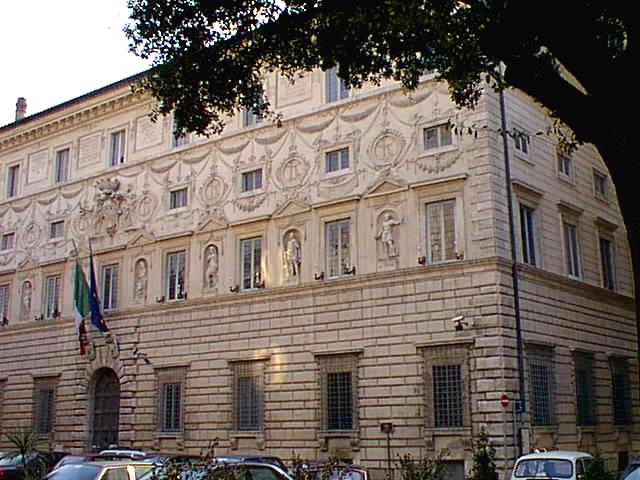PV developers and the legal community in Italy have welcomed a recent ruling by the Council of State, whose opinions will guide the approach that public authorities take to permits for renewables projects.
“Judgment No. 2983/2021 is very important. The Council of State affirmed that (renewable energy) plants are not only an expression of private economic initiative, but represent the public interest, as they contribute – even indirectly – to the protection of environment and landscape,” Andrea Sticchi Damiani, founding partner of law firm Sticchi Damiani, told pv magazine.
Mauro Moroni, founder of Moroni & Partners, goes further. “In this light, private investors involved in RES activities emerge as actors of strategic importance for the implementation of environmental and energy policies,” he said.
Not all experts expect to see immediate impacts, however.
“I don't expect an alignment from the regional and provincial administrations in the short term. However, the council's ruling will certainly be acknowledged by the regional administrative tribunals (TAR) as they settle the many ongoing disputes,” Gianluca Biagio Biscotti, founder of engineering consultancy BFP, told pv magazine. “Unfortunately, even if important, a sentence is not a law in Italy. Hence, I doubt that without a clear and direct legal provision that prevents a discretion often preconceived by public administrations, administrations will smoothly adapt to this new mindset.”
The Council of State has said that renewable energy plants are compatible with areas classified for agricultural purposes by urban planners, according to Sticchi Damiani and Moroni & Partners.
“It pointed out that the opinion of the Ministry of Culture [MIBACT] is not binding where there are no landscape or archaeological constraints. In such cases, therefore, the proceeding authority (in most cases the region) will be called to carry out an independent assessment of the project,” said Sticchi Damiani, referring to MIBACT’s local representatives.
The Ministry of Culture has long been considered an obstacle to PV development in Italy.
“The ruling decreases the local weight of the MIBACT, highlighting how the priority is to realize the plants,” said Moroni.
PV development on agricultural land now has a brighter future in Italy. Local authorities are now expected to be more sensitive to the specific features of projects.
“I have been long arguing that competences in the energy and environment fields should be completely taken away from regions,” said Biscotti, in reference to the Abruzzo region's decision to oppose renewables development on agricultural land. Abruzzo’s regional politicians have imposed a veto until eligible and non-eligible areas are clearly defined.
“On initial examination, it seems likely that the central government – as has happened in many other circumstances – will challenge before the constitutional court any provision aimed at introducing blanket bans on the installation of renewable energy plants in agricultural areas. Should the government fail to challenge the provision, the operators may appeal to the regional administrative court, asking a referral to the Constitutional Court,” said Sticchi Damiani.
Developers agree on the need to define suitable and non-suitable areas.
“It is essential, and we all expect it. We also wish for a regulatory provision that states that, on sites labeled as suitable, rejections can only be exceptions,” said Biscotti.
According to Moroni, suitable areas should speed up development.
“A simplified procedure should be foreseen in suitable areas, allowing investments to go ahead without worrying about not receiving permitting because of demagogic reasons,” he said.
Experts are cautiously optimistic about Roberto Cingolani, Italy’s new minister for the energy transition. “The minister has a huge responsibility. He repeatedly said that he wants to decrease bureaucratic hurdles for RES plants. We all hope that he will do so,” said Moroni.
Biscotti is more critical. “In my opinion, we witnessed many declarations and few concrete facts. From the storytelling of this government, it seems to emerge a strong focus on gas and hydrogen, not much on renewables. However, some days ago, the Italian Senate approved the European Delegation law, with several important decisions on renewable energy,” said Biscotti.
Sticchi Damiani is the most positive. “The minister will be able to defuse the obvious inefficiencies of the system that have generated billions of lost investments.”
This content is protected by copyright and may not be reused. If you want to cooperate with us and would like to reuse some of our content, please contact: editors@pv-magazine.com.



1 comment
By submitting this form you agree to pv magazine using your data for the purposes of publishing your comment.
Your personal data will only be disclosed or otherwise transmitted to third parties for the purposes of spam filtering or if this is necessary for technical maintenance of the website. Any other transfer to third parties will not take place unless this is justified on the basis of applicable data protection regulations or if pv magazine is legally obliged to do so.
You may revoke this consent at any time with effect for the future, in which case your personal data will be deleted immediately. Otherwise, your data will be deleted if pv magazine has processed your request or the purpose of data storage is fulfilled.
Further information on data privacy can be found in our Data Protection Policy.